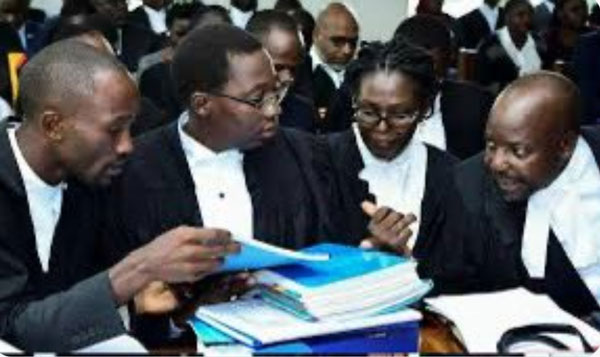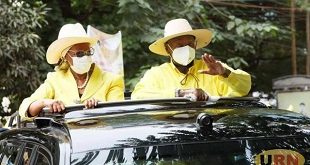
AG Asks Court to Dismiss Applications in Anti Homosexuality Case Over Bias
Kampala, Uganda | THE INDEPENDENT | The Constitutional Court has admitted Pastors Langa and Martin Ssempa as co-respondents with the Attorney General in the ongoing case challenging the Anti-homosexuality Act. They are expected to file written submission to the court today before the hearing of main consolidated petitions start on Monday, Dec. 18, 2023.
However only UNAIDS has been accepted as amicus curie (friend of the court). UNAIDS is leading the global effort to end AIDS as a public health threat by 2030 as part of the Sustainable Development Goals.
All other applications for amicus curie have been dismissed, including pharmaceutical companies, a law don from Ivy League universities plus a Southern African Litigation Centre.
Earlier, the Attorney General had formally asked the Constitutional Court to dismiss 14 applications linked to four consolidated petitions challenging the Anti-Homosexuality law. Citing bias and partiality, the Attorney General contests the legitimacy of these applications.
The parties include various entities such as the Southern Africa Litigation Centre, Centre for Legal Applied Studies, non-profit organizations, Lawyer Robert Rutaro, Pastor Martin Ssempa of Makerere Community Church, E Tendayi Achiume, the Attorney General, UNAIDS, and VIIV Healthcare Limited UK.
Represented by a team of State Attorneys led by Director for Civil Litigation Martin Mwambutsya, the Attorney General argued that these applications are driven by individuals with biased interests rather than neutrality and impartiality in seeking involvement in the case.
Pastor Ssempa’s application, in particular, faced strong resistance from all parties involved. The Attorney General, represented by State Attorney Mark Muwonge, opposed Ssempa’s attempt to join the government as a respondent, citing its incompetence and lack of legal basis. The court heard that Ssempa’s viewpoints on the moral and ethical aspects of homosexuality were relevant during the law’s enactment but weren’t pertinent to the current constitutional considerations regarding the Anti-Homosexuality Act’s alignment with constitutional provisions.
Despite objections from various parties and their respective legal representatives, who argue that Ssempa’s inclusion would lead to undue delays, Ssempa, represented by lawyer Gawaya Tegule, remained steadfast in upholding the law based on his beliefs.
In a separate application, a group led by E Tendayi Achiume, consisting of legal scholars from diverse countries, seeked to join the case as amicus curiae. They claimed neutrality and offer expertise in international law, human rights, and African constitutionalism, asserting their potential to contribute significantly to the case’s resolution.
These scholars aimed to assist the court by providing insights into legal facets concerning human rights and the law’s impact on equality, protection from discrimination, sexual autonomy, property rights, and socio-economic rights. They argued that their involvement will contribute to the evolution of legal principles.
The petitions contesting the Anti-Homosexuality law allege infringements upon constitutional freedoms and dignity, hindrance to the HIV/AIDS fight, and the imposition of severe penalties for consensual adult sexual acts. This law has attracted international criticism, with threats of aid cuts and sanctions against Ugandan officials, further intensifying the global controversy surrounding it.
***
URN
 The Independent Uganda: You get the Truth we Pay the Price
The Independent Uganda: You get the Truth we Pay the Price




